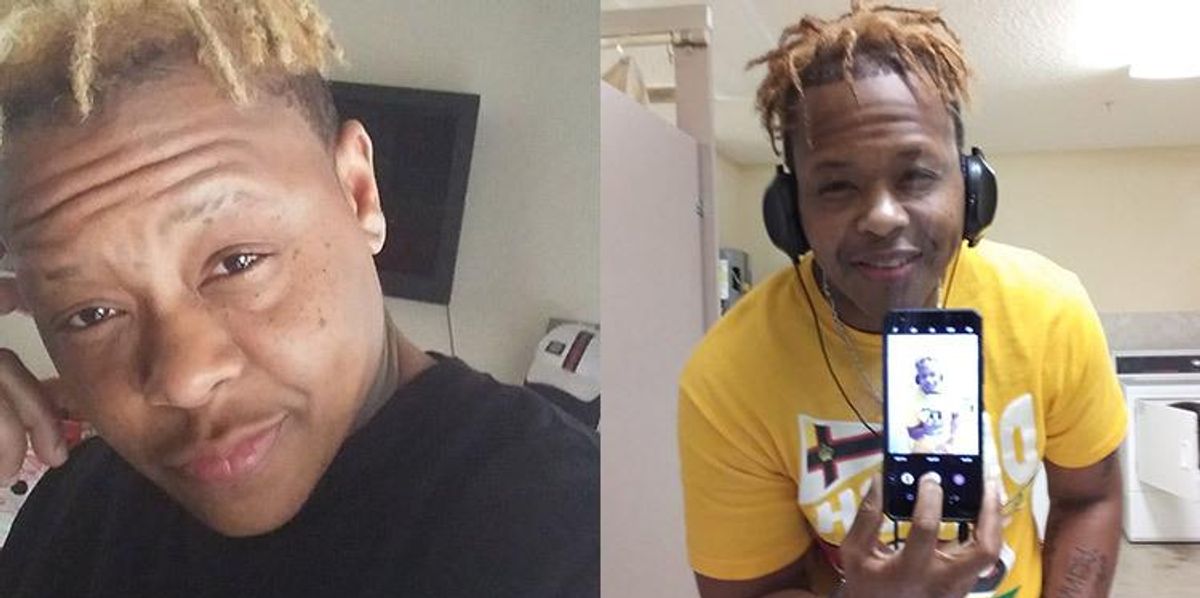States
Killing Of Tony Mcdade Tragic Incident Spotlights Racism And Police Violence

Tony McDade 38 an African American transgender man was shot and murdered by police in Tallahassee Florida at 11 a.m. on May 27 2020. The event happened on Saxon Street at the Leon Arms apartments. Tony McDade killing symbolizes American racism and police brutality.
The stabbing of 21 year old African American Malik Jackson earlier that day set in motion Tony McDade killing. Police investigated Jackson murder when McDade was identified.
The first reports misgendered McDade making the victim death worse. Authorities misidentified transgender male McDade as a woman. This portrayal sparked uproar and highlighted transgender people systematic prejudice particularly those of color.
Eyewitnesses gave contradictory accounts. Police said Tony McDade was armed and a danger but witnesses said racist obscenities were screamed at him before the deadly gunfire. Disparities highlighted the necessity for a comprehensive and unbiased examination.
Jackson stabbing and McDade shooting were investigated after that. As usual the officer who shot McDade was put on administrative leave until the inquiry.
Months later a grand jury upheld the police force against Tony McDade on September 3. This ruling increased public protest and questioned the impartiality of the court process especially in situations involving ethnic minorities.
McDade was shot after pointing a gun at an officer according to a Tallahassee Police Department body camera video. The circumstances of McDade death remained disputed despite this evidence.
The case legal struggle went beyond the probe. The Florida Police Benevolent Association used Marsy Law to protect Tony McDade shooting officer name. Many criticized this action calling for police brutality transparency and responsibility.
McDade and Malik Jackson were remembered during vigils after their deaths. The rallies mourned two deaths and demanded justice for police violence victims especially underprivileged ones.
McDade killing sparked nationwide outrage over law enforcement prejudice. Advocates criticized systematic prejudice against LGBTQ individuals of color and called for social change.
McDade legacy of perseverance and fight against injustice endures despite his terrible demise. His tale highlights the continuing battle against racism and police brutality in America and urges us to address these concerns and strive toward a more fair society.
Systemic Bias And Misrepresentation In Tony McDade story
Tony McDade story shows law enforcement and media prejudice and distortion. Initial accounts misgendering Tony McDade show a lack of compassion and understanding toward transgender people especially those of color. Misidentification humiliated McDade and promoted damaging stereotypes and transgender marginalization. Police reports and eyewitness testimony differ raising questions about law enforcement investigations’ trustworthiness and impartiality. Dismissing minority voices worsens criminal justice system disparities.
Intersectionality And Vulnerability
Transgender African American McDade was susceptible to assault and prejudice because of his various disadvantaged identities. The intersecting oppression Tony McDade faces emphasizes the need for intersectional social justice campaigning. His story highlights the unique issues of transgender individuals of color who typically endure increased abuse and discrimination. Systemic racism and transphobia must be addressed together. McDade tale highlights the necessity for intersectional and inclusive activism to fight injustice and promote equality.
Community Response And Activism
After McDade killing people throughout demanded justice and responsibility. VigilVigils demonstrations and internet campaigns were held to memorialize McDade and promote systemic change to memorialize McDade and promote systemic change. LGBTQ groups and activists’ support highlighted the intersectionality of racism transphobia and police brutality. McDade case inspired advocates for racial and gender justice to speak out against systematic injustices and defend underrepresented groups. McDade memory inspires change and perseverance as demands for police reform and racial fairness rise.
Read Also: Addressing Racism And Protecting Black Lives: Lawmakers’ Urgent Initiatives
Legal Challenges And Accountability
Tony McDade case raised important legal issues and police brutality accountability considerations. The grand jury order to use force against McDade raised questions about judicial openness and impartiality. Critics say such verdicts enable law enforcement agents to avoid responsibility by perpetuating a culture of impunity. Marsy Law use to conceal the officer identity hinders attempts to punish violent offenders. These legal impediments highlight the need for comprehensive police brutality reforms to promote accountability transparency and justice.
Mental Health And Policing
McDade case also shows mental health and police difficulties. His social media posts before the event suggest mental health issues and self harm. When law enforcement fails to treat mental health emergencies emotions increase and circumstances deteriorate. McDade received force and violence instead of support and aid. This tragedy highlights the essential need for law enforcement de escalation training and coordination with mental health specialists to address mental health emergencies.
Moving Forward Advocacy And Reform
After McDade death campaigners and activists continue to press for law enforcement reform. Redistributing police budgets to community based services including mental health and social assistance has grown. Additionally calls for police enforcement openness accountability and civilian supervision have increased. Racial justice LGBTQ rights and police accountability advocates have rallied behind McDade case. Long term reform and prevention of tragedies like McDade death need ongoing lobbying and grassroots engagement.













You must be logged in to post a comment Login